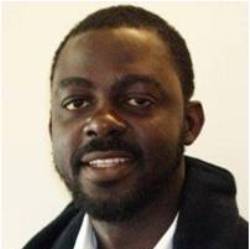The utilization of a high throughput sequencing facility in Sierra Leone to enable rapid pathogen sequencing
This is a Wellcome Trust funded project under the lead of Professor Ian Goodfellow with the aim of building the capacity of Sierra Leone in public health and notably Ebola sequencing as part of a preparedness strategy for future outbreaks. Professor Goodfellow is establishing a sequencing and testing facility at Makene University Sierra Leone. The facility will be used to build local capacity in Public Health and notably preventing and combating Ebola outbreaks as well as making sequencing data of the Ebola virus publicly available in order to track its evolution, origin and to inform interventions in the case of any outbreaks.
Feasibility of an Ebola vaccine using a live attenuated Salmonella–based vaccine platform
Dr Pietro Mastroeni is the co-supervisor of a Barbour Foundation 4 year MRes - PhD studentship in collaboration with Dr. Anjam Khan, University of Newcastle upon Tyne. The studentship funds the project will explore the application of Salmonella as a novel oral vaccine delivery system for Ebola. We hypothesize live attenuated Salmonella vaccine strains can deliver recombinant Ebola antigens to a hosts immune system to elicit protective immunity. The studentship will involve designing and constructing new vectors to optimize the expression and immunogenicity of recombinant Ebola antigens.
October 2014 to present
Funding: Wellcome Trust and Nigerian Government.
Supervisor: Professor Jonathan L Heeney
Understanding Hemorrhagic fever virus persistence
 PhD student, Chinedu Ugwu DVM, Nigeria
PhD student, Chinedu Ugwu DVM, Nigeria
The re-emerging diseases caused by Filoviruses (i.e. Ebola virus) and Arenaviruses (i.e. Lassa fever virus) replicate in dendritic cells. They are professional antigen presenting cell that link innate and adaptive arms of the immune system. This project aims to understanding the host and viral factors that allow these viruses to persist in antigen presenting cells such as Dendritic cells. Insights into persistence of these viruses in their natural hosts and infected humans may provide answers to some of the important unanswered questions concerning human and animal reservoirs of these viruses including why and how they continue to re-emerge.
October 2014 to present
Funding: Wellcome Trust and Nigerian Government.
Supervisor: Professor Jonathan L Heeney

